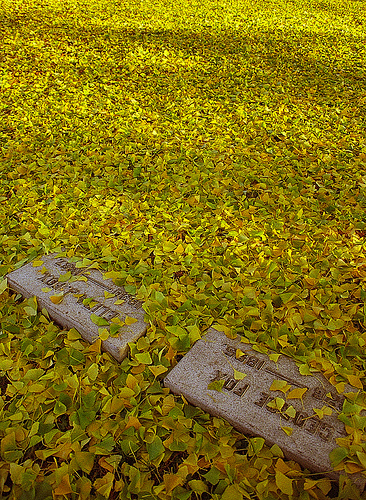Coping with Grief: Dealing with Death
 Loss is a part of life. However, we never find ourselves ready when someone close to us dies. We are shocked, angry and depressed all at the same time.
Loss is a part of life. However, we never find ourselves ready when someone close to us dies. We are shocked, angry and depressed all at the same time.
Coping is truly challenging, which leads us to finding ways to deal with death. Here we explore the many different ways those who have lost try to come to terms with the deceased.
Clearing misconceptions
Our human nature is to be resilient. That’s why many believe that there is a “normal” time period for someone to grieve. This is a common misconception that has plagued far too many. The truth grief takes as long as it needs to take. There is no set period of time as to when sadness ends and moving on begins.
There is also the widely popular concept of Stages of Grief (Denial, Anger, Bargaining, Depression, Acceptance). Another misconception that surrounds the Kübler-Ross model is people believe you have to go through every step, progressively. However, the reality is some people get stuck in one phase while others don’t go through the steps chronologically.
It must be understood that people react to death differently — no matter how long, what one does to deal with the pain and how one does it.
Emotional, Physical & Mental Dealing
The most common reaction to death is shock. Despite its inevitability, no one really anticipates it from happening. After the state of shock, the floodgates of emotions come crashing down. Along with it affects the way our bodies behave and the way our minds think.
The bereaved may feel sick, dizzy, nauseous, exhausted or dazed. You could also feel tightness in your throat, a certain heaviness in your chest or your stomach could be upset. Those who are grieving could also develop poor memory, confusion and a lack of concentration.
Some become extremely emotional when dealing with loss. They may feel numb and empty inside, as if their entire life was suddenly extracted from them. Some are overwhelmed by guilt. They may even feel a sense of resentment towards other people who are not going through the same thing as you; those you think are taking their loved ones for granted because you know that life is precious and ephemeral.
Isolation is yet another reaction to grief. People may sit still for long periods of time, at a loss in their own world. They may stay away from other people and would rather lock themselves up in their room and dwell in their own thoughts. They find that grieving alone gives a sense of quiet and safety.
No reaction is wrong. There is no need to stress about why we could be feeling or thinking in a certain way. What matters most is that we are dealing with it in our own way.
Terror Management Theory
In a psychological perspective, psychologists Jeff Greenberg (University of Ariona), Sheldon Solomon (Skidmore College) and Tom Pyszczynski (University of Colorado) have come up with Terror Management Theory: The idea that humans, unlike other living things, understand fully well that they are going to die. The result? They either deny and repress the idea or develop cultural symbols in a feat to contribute something that will continue beyond death.
There are different manifestations of such theory. Some resort to become more religious while others develop a heightened desire to have children. Some may also start living more positively while others may show reduced self-control.
Such an existential approach to death brings people to question their being; how they are currently living their life right now and how they want it to end.
“Searching Behavior”
Another reaction to death is what is referred to as “searching behavior”. Despite knowing that the person has already passed on, we still look and see their face on others’. We still believe that they could still be alive and this is all just an elaborate ruse. There may be times that we’re going about our daily lives and feel a sense of the deceased’s presence, as if s/he is just around the corner watching us.
At times, bereaved people report having auditory or visual experiences with the departed. Sometimes, a message from their deceased loved on is passed on in a dream or during meditation.
In cases like this, it is best not to panic. It’s surprisingly a common reaction among those who are dealing with the loss of a loved one, especially if they were particularly close to the person.
Special Occasions
Anniversaries and birthdays are particularly hard. Just when we thought we have accepted our loss and have begun moving on with our lives, it’s another reminder that the person is gone.
Experts suggest doing whatever needs to be done to get through the day — whether it’s taking the day of, keeping oneself busy or taking one’s favorite walk. If you are compelled to do something that reminds you of the person during that special occasion, then do it.
Feeling lifeless when dealing with death is common. Other emotions may pop up, others may not. The important thing to remember here is that coping with grief is not a “one size fits all”. As long as you are acknowledging what you are going through, energy is felt again. Along with it, a spark of hope.
More than anything, your deceased loved one wants you to live a full life. When you are ready to take it by the reins again, look up and smile.



